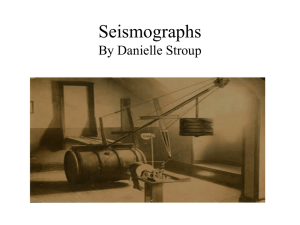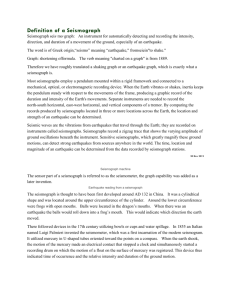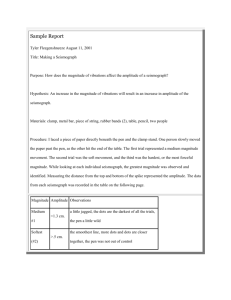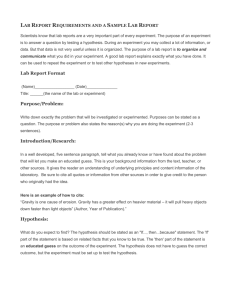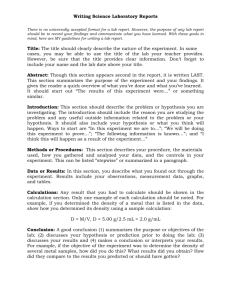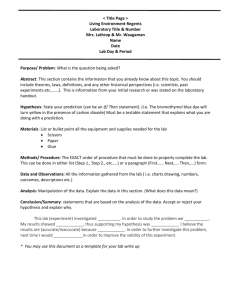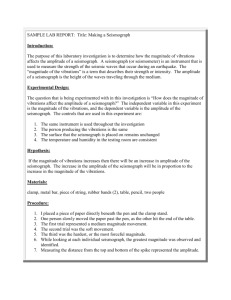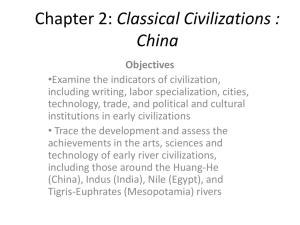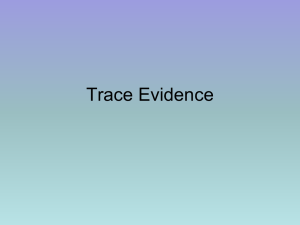Microsoft Office PowerPoint 97
advertisement
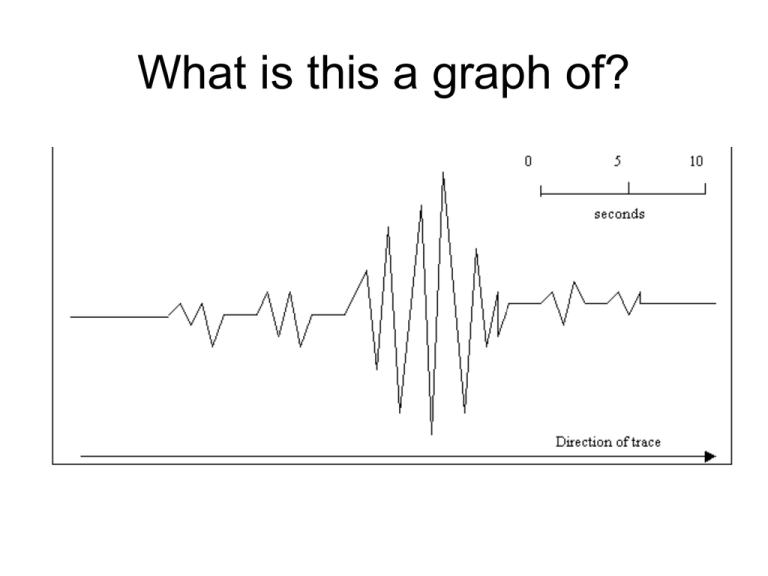
What is this a graph of? http://www.flickr.com/photos/catbutler/209739873/ Seismologists measure movements in the Earth with the aid of a seismograph. http://commons.wikimedia.org/wiki/Image:Kinemetrics_seismograph.jpg The seismograph produces a trace. http://www.usyd.edu.au/su/SCH/school/Seismograph/seismogram.jpg This is the seismograph trace for the Asian Tsunami 2004. http://www.usyd.edu.au/su/SCH/school/Seismograph/seismogram.jpg Main quake. Aftershocks. Foreshocks. We can highlight a number of points on a seismograph trace. http://www.geoworld.co.uk/livpupil2.htm Burglar alarms go off all over the city. The price of water and electricity goes up. The city breathes a sigh of relief. Let’s go to the people and events behind the seismograph trace. http://www.geoworld.co.uk/livpupil2.htm Your task • Stick your seismograph trace in the middle of a piece of A3 paper. •Cut out the statements and arrange them around the seismograph trace. Stick them down. •Draw a line, using a ruler, to the place on the seismograph that you feel the statement can be best placed. •In neat writing, next to the statement, write why you have chosen to place it there on the seismograph. • Give your piece the title ‘Seismograph’ and illustrate the background, so that it looks like a city devastated by an earthquake. http://www.flickr.com/photos/volcanoes/1054306122/

